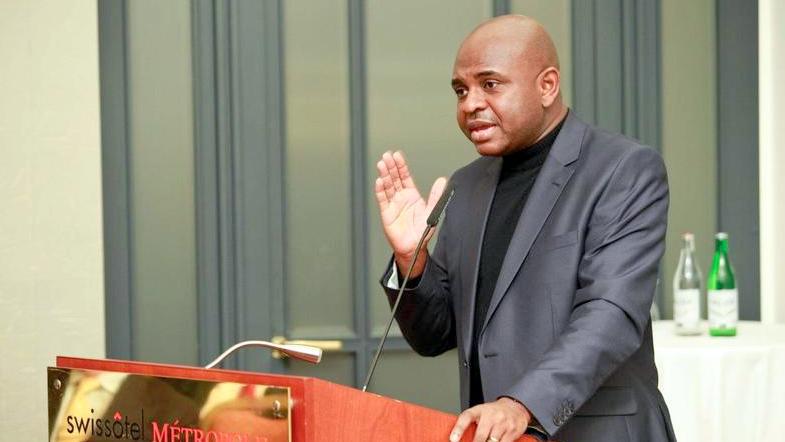Nigeria’s economy is being sabotaged by “greedy rent- seeking politicians,” a reason that has worsened the fall in the Naira, Kingsley Moghalu, former deputy governor of the Central Bank of Nigeria has said.
After a year of mass economic downturn for Africa’s largest economy in 2020, Nigeria hopes to recover from a second recession in two years by 2021.
Advertisement
Under the President Muhammadu Buhari’s administration, the country went into recession in 2016. This is coupled with a fresh recession in 2020, as the economy contracted for three consecutive quarters, according to the National Bureau of Statistics.
The country is also suffering huge foreign exchange woes over ailing oil prices which traded at about $20 per barrel in April last year.
The Covid- 19 pandemic had affected oil revenue which forms over 90 per cent of foreign exchange revenues from export, resulting in the further devaluation of the naira.
In 2020 alone, the apex bank as a result, devalued the naira at the official market twice, from N306 to N360 and N379 per dollar in a bid to converge the currency at different markets.
Advertisement
The currency almost hit N500 per dollar at the parallel market in November 2020.
The Import and Export Window, a market created by the CBN for exporters rose to N394 per dollar.
The former CBN Deputy Governor said on a monitored programme on Arise News that Nigeria’s current naira woe was beyond the shortage of dollar supply to meet demands.
“There is a lot of rent-seeking concerning the Naira,” Moghalu said.
The Professor of International Business and public policy noted, “If you keep the Naira subsidised, if you create different exchange rates for different types of businesses for the Naira, you are not creating a level playing field in the financial market.
Advertisement
“And there are people who profit from these arbitrage opportunities, and many of them are powerful, politically connected people who have a very important influence on political decision making which of course influences economic decision making. So our economy is suffering because of our politics.
“We don’t see enough clear thinking, enough depth of thinking going into economic policy making in our country.
“We are not very sure what Nigeria’s economic philosophy is,” he added.
Nigeria’s three foreign exchange windows had raised concerns among investors and international lenders, including the International Monetary Fund and the World Bank who think the different rates need to be converged.



